The LDS Church dropped their latest Big Essay this Friday. Friday’s the day that PR organisations drop press releases that they hope won’t attract a lot of attention. And that makes sense, because I don’t think anyone at Church HQ was looking forward to writing this one. It’s on DNA and the Book of Mormon.
There have already been some takedowns and discussion on the individual points it makes, and I’m not a population geneticist, so I’ll just defer to them.
But from my perspective, here are the interesting bits. In the second paragraph, we hit this:
Although the primary purpose of the Book of Mormon is more spiritual than historical, some people have wondered whether the migrations it describes are compatible with scientific studies of ancient America.
This was so jaw-dropping, I had to read it a couple of times. Are they actually backing away from the historicity of the Book of Mormon? It’s a very common tactic in apologetics to kick things a rung or two up the ladder of abstraction so they can’t be falsified, but this is a shift that I’ve never even seen hinted at. Weakening the historical case for the Book of Mormon is one step away from saying it didn’t happen. And that makes me wonder if church leaders even believe it anymore. Make no mistake, this is a meme to watch in the coming years.
Another tack I noticed is the Church’s retreat into obscurantism. Notice the kind of language they use:
Nothing is known about the DNA of Book of Mormon peoples…
DNA studies cannot be used decisively to either affirm or reject the historical authenticity of the Book of Mormon.
The Book of Mormon provides little direct information about cultural contact between the peoples it describes and others who may have lived nearby.
Nothing is known about the extent of intermarriage and genetic mixing between Book of Mormon peoples or their descendants and other inhabitants of the Americas…
…the picture is not entirely clear.
One reason it is difficult to use DNA evidence to draw definite conclusions about Book of Mormon peoples is that nothing is known about the DNA that Lehi, Sariah, Ishmael, and others brought to the Americas.
It is possible that each member of the emigrating parties described in the Book of Mormon had DNA typical of the Near East, but it is likewise possible that some of them carried DNA more typical of other regions.
In the case of the Book of Mormon, clear information of that kind is unavailable.
…it is quite possible that their DNA markers did not survive the intervening centuries.
…the evidence is simply inconclusive. Nothing is known about the DNA of Book of Mormon peoples.
As Elder Dallin H. Oaks of the Quorum of the Twelve Apostles observed, “It is our position that secular evidence can neither prove nor disprove the authenticity of the Book of Mormon.”
Retreat into the unknown
What a lot of mealy-mouthed vacillation. Is this the same group that boldly proclaims that a god restored the everlasting gospel, and that we know for a surety of its truthfulness? But now, when there are questions about its foundational text, they sound like Hans Moleman. When you have the facts on your side, you state the facts. If someone’s trying to obscure things and retreat into uncertainty, you can bet they don’t have the facts on their side.
The phrase “Nothing is known about…” is repeated four times. Gee, it’s too bad they don’t have a… prophet or something to help them with that. It’s this kind of thing that made me realise that listening to a prophet is a really weird and unreliable method of getting information.
Possibilism
There’s also a heavy emphasis on the idea that “you can’t prove or disprove” the Book of Mormon story, with the implication that the probability of it being true or not is about 50-50. It’s not 50-50. The bulk of the probability that the Mormon story is true is vanishingly small, and shrinking. Yet some people will hold onto that tiny sliver of hope, as long as they think it’s still ‘possible’.
I call this possibilistic reasoning, by which I mean ‘a tendency to look only at the possible, holding onto one’s preconceptions until they’re conclusively disproven, one hundred and one percent’. This is how true believing Mormons hold onto their belief in the Church. God, Jesus, and the ghost of Joseph Smith could appear and tell them it was all a fake, and they’d write it off as the devil’s deception. They’ll ignore the bulk of probability, and hold onto the sliver. It’s the same way some of them reject evolution and climate change. The possibility that it’s wrong (and there’s always a possibility) is enough for them to reject it and keep going with whatever they like.
By contrast, probabilistic reasoning looks at the bulk of probability. How true is a thing likely to be, given the evidence we have? By this reasoning, evolution and climate change are extremely likely — not 100%, but close. And the Book of Mormon, with no evidence on its side, but a lot of strikes against it, is likely false.
When discussing this with my friend Mark Ellison, he remarked, “I think possibilistic reasoning is responsible for a great deal of intellectual evil,” and I’d have to agree.
So this DNA statement from the First Quorum of the Anonymous may be somewhat comforting to possibilistic reasoners who are trying to sustain their faith in the irrational, but it’s falling flat with people who are concerned with basing their views on the best evidence.
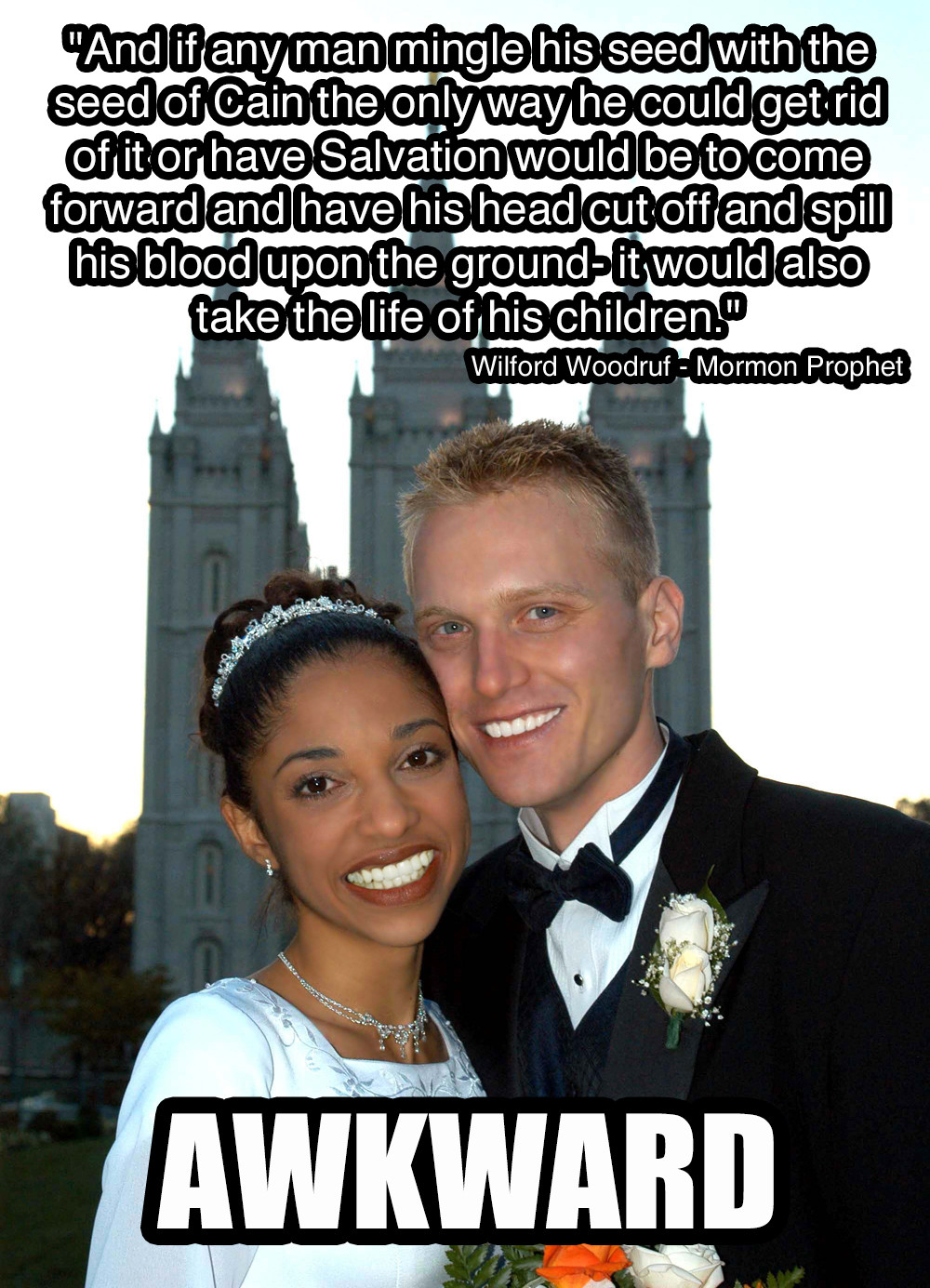

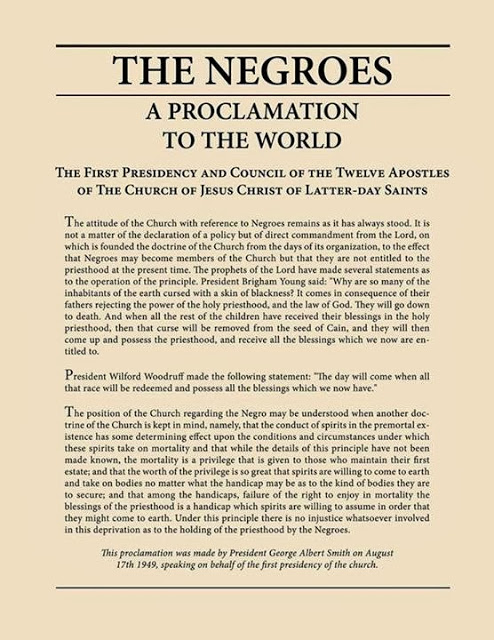
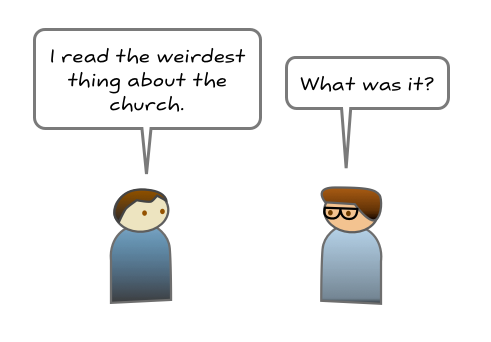
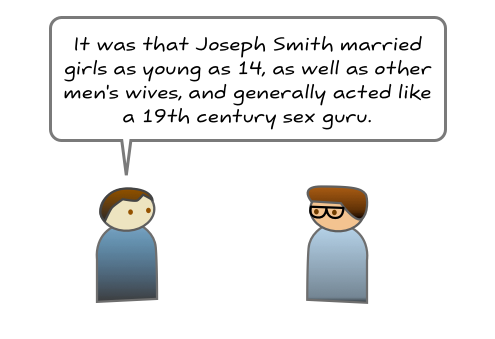

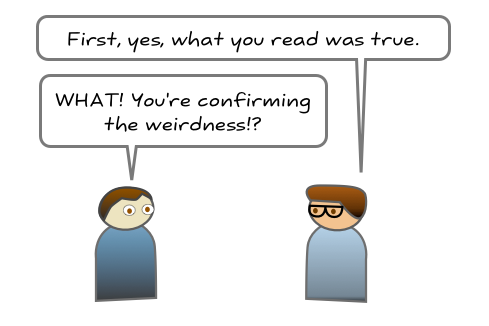
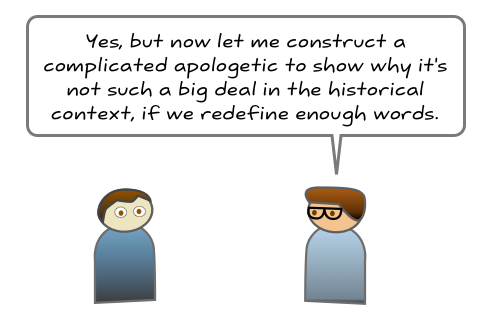
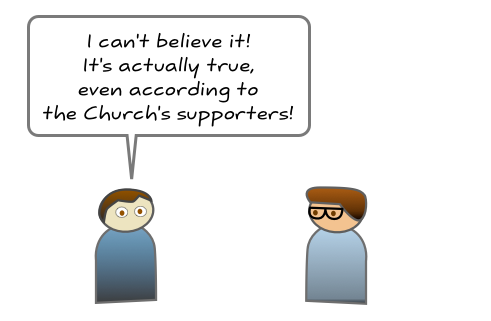
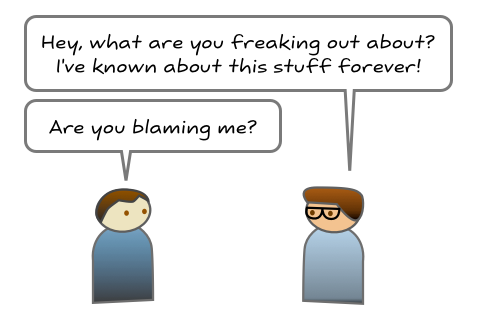
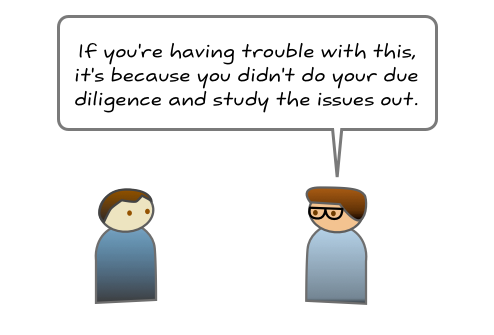

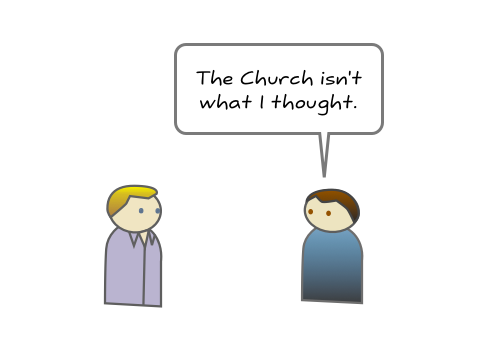
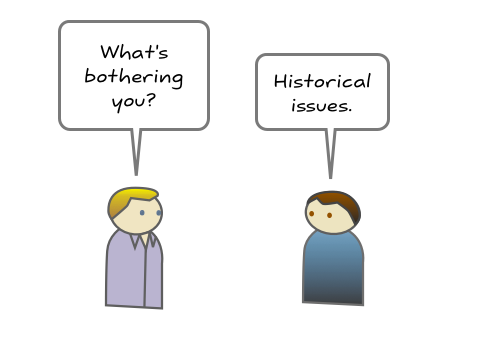


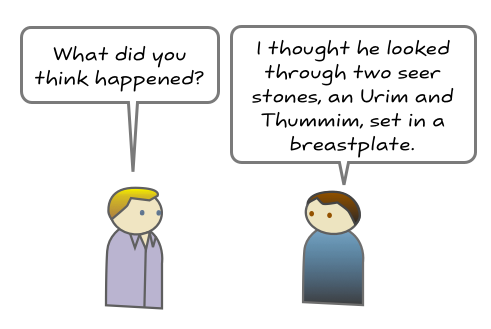
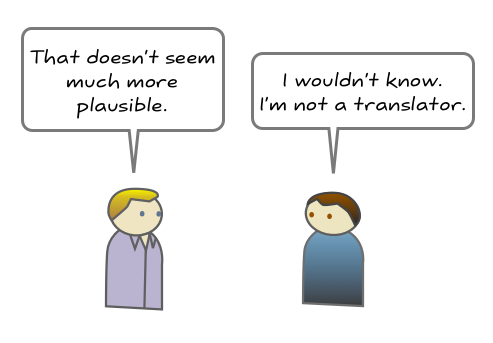
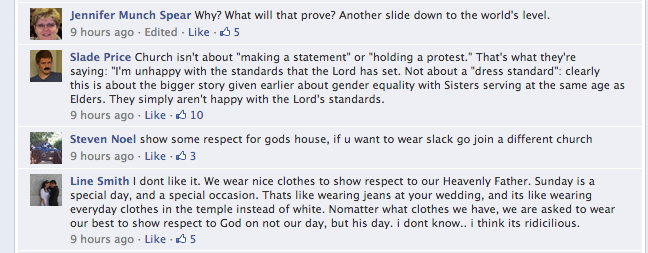
Recent Comments